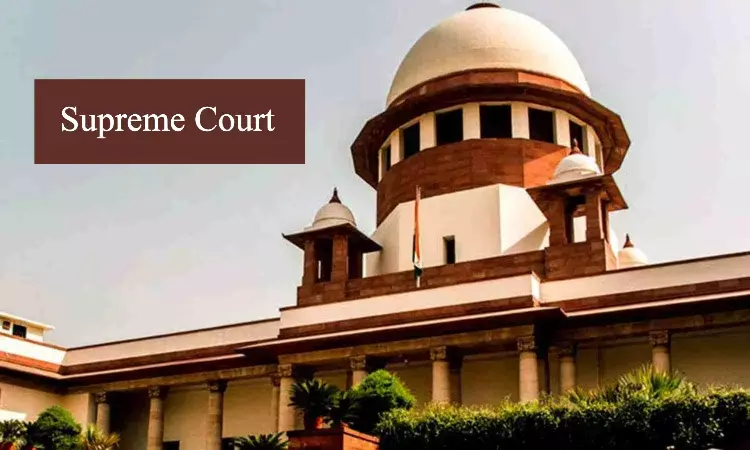- Home
- Medical news & Guidelines
- Anesthesiology
- Cardiology and CTVS
- Critical Care
- Dentistry
- Dermatology
- Diabetes and Endocrinology
- ENT
- Gastroenterology
- Medicine
- Nephrology
- Neurology
- Obstretics-Gynaecology
- Oncology
- Ophthalmology
- Orthopaedics
- Pediatrics-Neonatology
- Psychiatry
- Pulmonology
- Radiology
- Surgery
- Urology
- Laboratory Medicine
- Diet
- Nursing
- Paramedical
- Physiotherapy
- Health news
- Fact Check
- Bone Health Fact Check
- Brain Health Fact Check
- Cancer Related Fact Check
- Child Care Fact Check
- Dental and oral health fact check
- Diabetes and metabolic health fact check
- Diet and Nutrition Fact Check
- Eye and ENT Care Fact Check
- Fitness fact check
- Gut health fact check
- Heart health fact check
- Kidney health fact check
- Medical education fact check
- Men's health fact check
- Respiratory fact check
- Skin and hair care fact check
- Vaccine and Immunization fact check
- Women's health fact check
- AYUSH
- State News
- Andaman and Nicobar Islands
- Andhra Pradesh
- Arunachal Pradesh
- Assam
- Bihar
- Chandigarh
- Chattisgarh
- Dadra and Nagar Haveli
- Daman and Diu
- Delhi
- Goa
- Gujarat
- Haryana
- Himachal Pradesh
- Jammu & Kashmir
- Jharkhand
- Karnataka
- Kerala
- Ladakh
- Lakshadweep
- Madhya Pradesh
- Maharashtra
- Manipur
- Meghalaya
- Mizoram
- Nagaland
- Odisha
- Puducherry
- Punjab
- Rajasthan
- Sikkim
- Tamil Nadu
- Telangana
- Tripura
- Uttar Pradesh
- Uttrakhand
- West Bengal
- Medical Education
- Industry
Supreme Court upholds HC order on salaries for Punjab Doctors Working As Assistant Professors

Supreme Court of India
New Delhi: The Supreme Court bench recently upheld the Punjab and Haryana High Court order granting assistant professors their due pay scales in accordance with the Punjab Medical Education (Group-A) Service Rules of 2016.
Previously, the Single and Division bench of Punjab and Haryana High Court made this observation. However, challenging the order, the Punjab State Government had approached the Supreme Court bench.
While considering the matter, the Division bench of the Apex Court comprising Justices Sudhanshu Dhulia and K Vinod Chandran noted that the State was challenging the order dated 10.12.2024 passed by the Division Bench of the High Court "whereby the High Court has only confirmed the order of the learned Single Judge of the High Court which has granted higher pay scale to the private respondents as per the Rules."
However, disposing of the plea, the top court bench held, "We see absolutely no occasion to interfere with the well considered order of the Division Bench of the High Court, in exercise of our jurisdiction under Article 136 of the Constitution of India."
Also Read: HC slams State for arbitrary action, says doctors deserve rightful pay
Medical Dialogues had earlier reported that the litigation arose as the doctors, who were appointed under the 2016 rules, were denied the prescribed pay scales of Rs 37,400 to 67,000 with grade pay of Rs 8,600. When the State issued executive instructions to apply lower central pay scales, the doctors challenged the decision before the Single Judge bench.
Earlier, the single-judge bench had termed the State's action arbitrary, directing compliance with the 2016 Rules. This order was upheld by the Division bench of the High Court, which dismissed the State's appeal for lacking merit.
The Division bench affirmed that the doctors, who were appointed as assistant professors, were entitled to the pay scales specified in the 2016 Rules. It also rejected the State's argument that the advertisement and appointment letters, which offered a lower pay scale, were binding on the doctors. The bench noted that the executive instructions could not override statutory provisions.
"Merely because in the advertisement/appointment letters, the state had prescribed a lower pay scale, the same cannot come in the way of the respondents seeking the enforcement of their lawful rights. It is trite that the executive instructions cannot override statutory rules," observed the HC bench.
It was observed by the Court that the proper course required to be adopted was the amendment of the rules, in case the State intended to provide "another or lower pay scales".
"There is no dispute that the rules have not been amended. Executive instructions would have the force of law only in the absence of statutory rules or to fill the gaps in the statutory rules, which is not there in the case at hand," it observed.
To view the Supreme Court order, click on the link below:
https://medicaldialogues.in/pdf_upload/supreme-court-order-punjab-271468.pdf
Also Read: Doctors Deserve Respect, Rightful Pay! HC Slams State for Arbitrary Action
M.A in English Barsha completed her Master's in English from the University of Burdwan, West Bengal in 2018. Having a knack for Journalism she joined Medical Dialogues back in 2020. She mainly covers news about medico legal cases, NMC/DCI updates, medical education issues including the latest updates about medical and dental colleges in India. She can be contacted at editorial@medicaldialogues.in.


